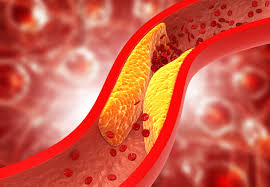10 November 2025 | Monday | Reports

Enlicitide, designed to deliver antibody-like efficacy, has the potential to be the first approved oral PCSK9 inhibitor to lower LDL-C with a safety profile comparable to placebo
Enlicitide may help address unmet needs in ASCVD, a key driver of the ongoing cardiovascular (CV) epidemic
Merck (NYSE: MRK), known as MSD outside of the United States and Canada, announced the first presentation of results from the pivotal Phase 3 CORALreef Lipids trial demonstrating that treatment with enlicitide decanoate, an investigational, once-daily oral proprotein convertase subtilisin/kexin type 9 (PCSK9) inhibitor, resulted in a statistically significant and clinically meaningful reduction in low-density lipoprotein cholesterol (LDL-C) of 55.8% (primary analysis; 95% CI: -60.9, -50.7; p<0.001) and of 59.7% in a post-hoc reanalysis (95% CI: -62.3, -57.1; p<0.001) compared to placebo at week 24. These late-breaking data will be presented for the first time today at the American Heart Association (AHA) Scientific Sessions 2025 (Abstract #4391578) and were selected for the Late-Breaking Science News Briefing.
In CORALreef Lipids, adults with or at-risk for atherosclerotic cardiovascular disease (ASCVD) on background lipid-lowering therapies or a documented statin intolerance who received once-daily oral enlicitide had statistically significant and clinically meaningful reductions in LDL-C at week 24 (primary endpoint) and statistically significant and sustained reductions in LDL-C through one year (week 52). Enlicitide demonstrated statistically significant reductions in secondary endpoints including non-high-density lipoprotein cholesterol (non-HDL-C), apolipoprotein B (ApoB) and lipoprotein(a) (Lp(a)) at week 24. The overall safety profile was comparable to placebo. High adherence with study intervention (97%) and dosing instructions (≥97%) were observed across treatment groups.
“Enlicitide demonstrated impressive LDL-C reductions with placebo-like safety in the CORALreef Lipids study, underscoring the practice-changing potential of an oral PCSK9 inhibitor,” said Dr. Ann Marie Navar, a lead author of the study and Associate Professor of Medicine in the Division of Cardiology at UT Southwestern Medical Center. “Despite the availability of lipid-lowering therapies such as statins and injectable PCSK9 inhibitors, the majority of patients with atherosclerotic cardiovascular disease do not reach their LDL-C goal. Enlicitide has the potential to help close gaps in achievement of lipid goals in patients with and at risk for cardiovascular events and ultimately help address the ongoing CV epidemic.”
“Enlicitide was designed to deliver PCSK9 antibody-like efficacy and specificity in an easy-to-use pill,” said Dr. Dean Y. Li, president, Merck Research Laboratories. “Enlicitide, if approved, adds to physicians’ armamentarium to lower LDL-C. This moment is the result of Merck’s legacy and commitment to researching ways to help improve ASCVD outcomes for millions worldwide and our strength in medicinal chemistry using our novel macrocyclic peptide platform. Cardiovascular disease is the leading cause of death globally, and we look forward to bringing a potential new option to help address the CV epidemic.”
At one year, enlicitide showed a sustained statistically significant reduction in LDL-C of 47.6% (primary analysis; 95% CI: -52.7, -42.5; p<0.001) and of 52.4% (post-hoc reanalysis; 95% CI: -55.1, -49.7; p<0.001) compared to placebo. At week 24, enlicitide demonstrated reductions in non-HDL-C of 53.4% (95% CI: -55.5, -51.2; p<0.001), ApoB of 50.3% (95% CI: -52.1, -48.5; p<0.001) and Lp(a) of 28.2% (95% CI: -30.3, -26.0; p<0.001) compared to placebo. The study also showed that 67.5% of patients treated with enlicitide achieved the rigorous prespecified goal of at least 50% reduction in LDL-C along with an LDL-C <55 mg/dL (1.42 mmol/L) compared to 1.2% in the placebo arm at week 24.
Enlicitide had a safety profile similar to placebo. There were no apparent differences between the enlicitide and placebo groups in the incidence of any adverse events (AEs), serious AEs or deaths. Discontinuations due to AEs were low and similar between enlicitide (3.1%) and placebo (4.1%).
Merck plans to share data from this trial, along with data from CORALreef HeFH and CORALreef AddOn with regulatory authorities worldwide.
© 2026 Biopharma Boardroom. All Rights Reserved.